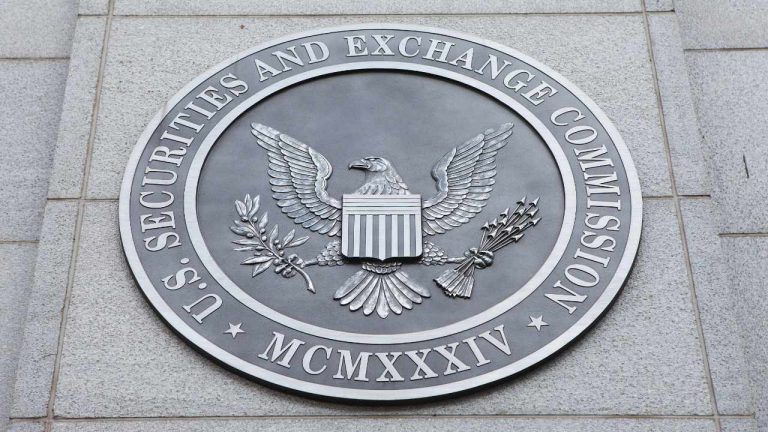
A US federal judge found Rivetz and its CEO Steven Sprague sold unregistered securities when it offered an Ethereum-based token in 2017.
The United States Securities and Exchange Commission has scored yet another win against a crypto firm over an initial coin offering (ICO) — winning a judgment in a case against Rivetz Corp and its CEO, Steven Sprague.
In a Sept. 30 order, Massachusetts federal court judge Mark Mastroianni agreed with the SEC that Sprague, through Rivetz, sold unregistered securities by offering the Ethereum-based Rivetz, or RvT, token to US persons.
The regulator sued the defunct blockchain hardware firm and Sprague in September 2021, alleging they sold $18 million worth of Rivetz tokens in 2017 to over 7,200 investors, a third of which were in the US.

Financial services titan Franklin Templeton says it’s building a money fund for regulated securities on the smart contract platform Solana (SOL). In a session during the Solana Breakpoint 2024 event, Mike Reed, Franklin Templeton’s head of digital asset partnership development, says that the investment giant’s last step to completing its project is to file to […]
The post Investment Giant Franklin Templeton Building On-Chain Financial Services for Regulated Securities on Solana appeared first on The Daily Hodl.

The SEC has taken action against romance scammers for the first time, charging two allegedly fake crypto exchanges with carrying out fraud.
The United States Securities and Exchange Commission says it has taken its first-ever action against crypto “pig butchering” scammers, charging two allegedly “fake crypto asset trading platforms.”
The SEC sued five entities and three people it said were connected to the alleged fake exchanges NanoBit and CoinW6, accusing them of stealing nearly $3.2 million after gaining investors’ trust and pursuing relationships with them via social media, according to a Sept. 17 statement.
“These charges are the SEC’s first enforcement actions alleging these types of scams,” the SEC added.
 The U.S. Securities and Exchange Commission (SEC) has charged Flyfish Club for conducting an unregistered offering of crypto asset securities through non-fungible tokens (NFTs), raising $14.8 million for an exclusive restaurant project. “Flyfish agreed to a cease-and-desist order, to pay a $750,000 civil penalty, and to comply with certain undertakings,” the regulator noted. SEC Charges […]
The U.S. Securities and Exchange Commission (SEC) has charged Flyfish Club for conducting an unregistered offering of crypto asset securities through non-fungible tokens (NFTs), raising $14.8 million for an exclusive restaurant project. “Flyfish agreed to a cease-and-desist order, to pay a $750,000 civil penalty, and to comply with certain undertakings,” the regulator noted. SEC Charges […]

The company is following the steps of Prometheum, which now treats four cryptocurrencies as securities.
The United States has a second special purpose broker-dealer (SPBD) for digital asset securities. The Securities and Exchange Commission (SEC) and Financial Industry Regulatory Authority (FINRA) have approved tZero Digital Asset Securities as a digital asset SPBD, giving it the right to custody digital asset securities on behalf of retail and institutional clients.
Its new status allows SEC-regulated alternative trading system operator tZero to carry out custody, clearance and settlement of securities without a third-party custodian, making tZero a “one-stop shop” for digital asset security issuance and secondary trading, the company said in a statement. The company helps private companies go public through securities offerings.
tZero has a “long-standing position that many digital assets in the market constitute securities under existing legal frameworks,” it said. Although that claim is widely disputed in the crypto world, tZero will treat digital assets as securities when it provides custody of them. tZERO chief legal and corporate affairs officer Alan Konevsky said:

The SEC has targeted the largest NFT marketplace for unregistered securities trading, and the crypto community is outraged.
The United States Securities and Exchange Commission issued a Wells notice to OpenSea on Aug. 28, stating that the non-fungible token (NFT) exchange had served as a marketplace for unregistered securities.
OpenSea CEO Devin Finzer said he was “shocked” by the SEC action.
The crypto community protested the notice, which serves as a warning that the SEC may take enforcement action against the exchange.
 The U.S. Securities and Exchange Commission (SEC) has issued a Wells notice to Opensea, signaling potential enforcement action against the NFT marketplace. Opensea’s CEO criticized the SEC’s move, claiming it could negatively impact innovation and creators’ livelihoods. The platform is prepared to contest the action and has committed $5 million to support NFT creators facing […]
The U.S. Securities and Exchange Commission (SEC) has issued a Wells notice to Opensea, signaling potential enforcement action against the NFT marketplace. Opensea’s CEO criticized the SEC’s move, claiming it could negatively impact innovation and creators’ livelihoods. The platform is prepared to contest the action and has committed $5 million to support NFT creators facing […] The chief legal officers at Kraken and Ripple have weighed in on the Federal Court for the Northern District of California’s recent decision in the U.S. Securities and Exchange Commission’s lawsuit against Kraken. “Another court, this time in the Kraken case, confirms there’s no such thing as a ‘crypto asset security.’ Bad news for the […]
The chief legal officers at Kraken and Ripple have weighed in on the Federal Court for the Northern District of California’s recent decision in the U.S. Securities and Exchange Commission’s lawsuit against Kraken. “Another court, this time in the Kraken case, confirms there’s no such thing as a ‘crypto asset security.’ Bad news for the […] The U.S. District Court for the Northern District of California has denied Kraken’s motion to dismiss a lawsuit by the U.S. Securities and Exchange Commission (SEC). The court determined that the SEC “has plausibly alleged” that certain crypto tokens traded on the Kraken exchange could be considered securities, thereby allowing the case to proceed. Kraken’s […]
The U.S. District Court for the Northern District of California has denied Kraken’s motion to dismiss a lawsuit by the U.S. Securities and Exchange Commission (SEC). The court determined that the SEC “has plausibly alleged” that certain crypto tokens traded on the Kraken exchange could be considered securities, thereby allowing the case to proceed. Kraken’s […]

The proposed settlement involves Mango DAO neither admitting nor denying wrongdoing and paying a $223,228 fine.
Mango Markets is considering making a settlement offer with the United States Securities and Exchange Commission (SEC) over allegations it violated US securities laws.
The DAO that manages the Solana-based decentralized exchange (DEX) opened voting for an “SEC Settlement Offer Proposal” on Aug. 19.
The Mango DAO proposed a settlement that includes paying fines, destroying its MNGO tokens, and seeking delisting from trading platforms.